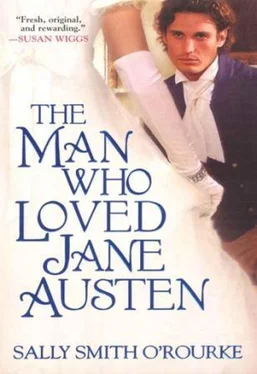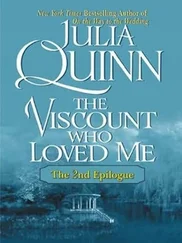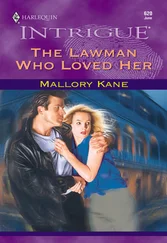At least to the extent needed to fool her.
Stymied.
At that moment Eliza was struck by the painfully obvious realization that only an expert was going to be able to authenticate the letters that she had found. And while it may seem odd that she had not immediately thought about the need for laboratory testing and forensic comparisons of the old documents when she first discovered them, the simple truth was that Eliza’s mind didn’t function that way.
She was a dreamer and a fantasizer, and so it was the romance of the letters, not their physical characteristics, that had caught hold of her imagination.
Still, she admitted, coming down to the library and actually seeing the carefully preserved letter in the exhibit had served its purpose. For she had been made suddenly aware that she was totally out of her depth in even attempting to seriously research the authenticity of her letters.
“Fine!” she exclaimed a little too loudly, even for the noisy exhibit room. “Where do I find an expert in this damn place?”
Eliza snapped her bag shut in frustration. The sharp sound of the metal clasp closing echoed through the big room like a gunshot and she looked up guiltily just in time to see a middle-aged security guard with a ponderous belly turning in her direction to look for the source of the sudden noise.
“Whoops!” Another mistake. Eliza immediately stepped away from the display case and made for the far end of the exhibit hall, forcing herself to maintain a leisurely pace, despite her racing pulse.
For it had also just occurred to her that bringing a letter from Jane Austen into a heavily guarded exhibit of priceless Jane Austen artifacts had probably not been the smartest move she had ever made.
“Stupid!” she berated herself under her breath. “Stupid, stupid, stupid!”
Reaching the far end of the long room, Eliza found temporary refuge amid a freestanding display of mannequins dressed in clothing representative of the fashions popular during the era when Jane Austen was published.
Safely concealed along a winding pathway peopled with costumed dummies, which had been artfully positioned among various props and pieces of painted scenery to suggest that they were in a park, a drawing room or some other location, she chanced a look around and was relieved to see that she had not been followed.
Her momentary fear of being caught in the ludicrous position of having smuggled her own property into the library quickly faded and she began to look with a designer’s interest at the clothing display, proceeding slowly along the path from item to item.
Grinning inwardly because she was almost certain she recognized some of the Regency-era costumes in the display from recent film versions of P&P and Emma , Eliza stepped closer to examine an elaborately embroidered and extremely low-cut gown of bright rust-colored velvet. A small metal stand beside the mannequin held a descriptive placard. Eliza read aloud from the card:
“A young woman of the Regency period would have felt both comfortable and fashionable wearing this exquisite gown to a grand winter ball.”
“Ha!” she snorted derisively. “Fashionable maybe… comfortable, no!”
“Really! And why is that?”
Startled, Eliza spun around to see a man in a well-cut dark suit regarding her with obvious curiosity. Narrowing her flashing dark eyes with the wariness of a born New Yorker, she quickly assessed the tall stranger. Athletic but not from working out at the gym. By the deeply tanned features she judged him to be an outdoor type, a cyclist maybe, or a mountain climber—and not bad-looking either, she thought. He was rather good-looking in fact.
The stranger arched his eyebrows, still waiting for her reply to his question.
“Well look at this ridiculous gown!” she said, covering her embarrassment at having been caught sizing him up by turning back to the hideous orangish dress.
“In the first place, it’s extremely ugly,” she declared. “And, secondly, it’s cut so low that the poor woman would have risked pneumonia every time she wore it, at least if what I’ve heard about English winters is true.”
Her handsome interrogator nodded agreeably. “It’s very true,” he said in a soft voice tinged with a slight Southern drawl. “And not only are English winters cold, there was no central heating in the early 1800s.”
He wrinkled his brow thoughtfully and moved around for another perspective on the terrible dress. “On the other hand,” he observed, gazing pointedly at the revealing bodice, “twenty years earlier, aristocratic French women wore gowns that exposed their breasts almost entirely.”
He grinned at her, then quickly added, “All in the name of dame fashion, of course.”
Eliza found herself grinning back at him, and at the same time she noticed his eyes were sea green in color and sparkled when he smiled.
“Well, the French!” she laughed. “What can I say?”
Her laugh reminded him of crystal glasses ringing together in a toast.
“However,” she continued, jerking an unladylike thumb at the offensive gown, “I can’t imagine Jane Austen having worn something like that.”
Eliza paused thoughtfully, searching for an apt comparison with which to illustrate her opinion. “That dress reminds me of those see-through designer numbers that celebrities are always showing up in at the Oscars,” she explained after a moment of contemplation. “You know the kind I mean, supposedly the height of fashion, but completely impractical and just plain silly.”
The stranger considered that and she saw in his eyes that he was conceding the point before he spoke. “I have to agree with you,” he finally admitted. “Jane was not a silly person. She’d never have worn a gown like that.”
He then turned to indicate a male mannequin just across the aisle from where they stood. This one was dressed in a splendid uniform of dark blue spangled with gold braid, and had a gleaming silver saber belted to its side.
“This naval officer’s uniform of the period is probably far more accurate in terms of clothing that someone who knew Jane might have worn,” he observed. “Her brother, Sir Francis Austen, became admiral of the British Fleet, you know.”
Eliza stepped across the narrow aisle to look at the uniform. “I didn’t know that,” she admitted. “In fact, I’d always had the impression that her family was relatively poor.”
“The Austens weren’t rich,” he explained, “but they were very well connected, with many wealthy and aristocratic friends. And, in time,” he continued, “the family did ultimately become rather prosperous. Another of Jane’s brothers was adopted by wealthy relatives and inherited a very large estate, and Henry, the youngest, became a prominent banker.”
The stranger paused while Eliza absorbed all of that, then he pointed toward the end of the winding path. “If you want a glimpse of how the Austens really lived,” he offered, “come down and look into the next exhibit room.”
Without waiting to see if she would follow, the tall man turned and walked off in the direction he had indicated. Eliza stood there for a moment, watching him go. She briefly considered remaining where she was, just so he wouldn’t think she was hanging on to him, then she shrugged and hurried to catch up.
Stepping out of the clothing display she found him standing by an open doorway that had been roped off so visitors could look through but not enter.
Eliza stepped up beside the stranger and looked into the dimly lit room beyond. “Oh,” she breathed, “it’s wonderful!” She was looking into a comfortable room in what she assumed was a Regency-period English country house. The furnishings and decorations were exquisitely inviting, right down to a richly colored needlepoint settee, a fine piano and a roaring fireplace.
Читать дальше











